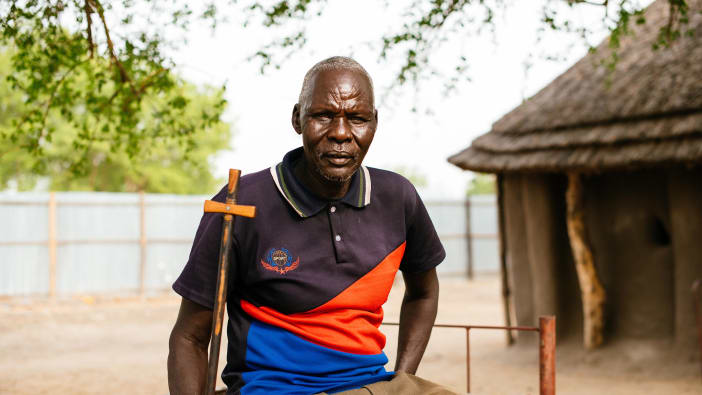Groups of people in a conflict situation each have their own interests or goals. But how they respond to conflict depends also on how important they feel it is to maintain a relationship with the other group or groups involved and on how much power they think they have. What are the different ways in which people respond?
Withdrawing If people feel their goals are not important and also that it is not important to maintain good relationships, they may respond to conflict by withdrawing. They stay away and stop talking. They may withdraw because they feel the conflict is none of their business. On the other hand, they may feel their involvement will make no difference at all – they feel powerless and helpless, they may lack confidence and find it easier to avoid the conflict. Gandhi and Martin Luther King, however, both used withdrawing from conflict with great effect to make their points of view clear.
Giving in People give in as a means of handling conflict if they place great importance on their relationships with others and little upon their own goals. They want peace at all costs; to be accepted and liked by other people is most important. This may work especially when it means keeping an important relationship. Conflicts may even disappear just because someone stayed friendly. But giving in may mean keeping silent about the real issues and bottling up hurts and ill-feelings. Power balances within a community may result in some people having a habit of giving in, perhaps because of other benefits relationships can bring them.
Forcing People who overpower their opponents have a low regard for other people. They do not place much value on relationships with others. They are rarely as powerful as they like to believe. ‘Winning’ and being seen to win is part of the goal. Some people force their goals through because they are in the habit of being on top or because they want to protect themselves from the pain of being wrong. But if someone wins by force, others are being ‘forced’ to lose. The loser may withdraw, refuse to co-operate or even sabotage the decision.
Compromising People compromise if they recognise that they cannot expect to achieve all their goals. They negotiate and bargain, building relationships without it costing either side too much. They recognise the need for both sides to gain something – for the outcome to be seen as ‘fair’. But sometimes the result may be that everyone feels the outcome is unsatisfactory: neither side feels any commitment to the solution.
Co-operating For those who choose to cooperate, personal goals and relationships are important. They believe that people can find new and imaginative solutions to conflict that lead to both sides winning. Just because there is a winner, does it therefore mean there must be a loser? When conflicting groups sit down together to discuss their needs (their goals), often they themselves realise their needs have changed. Perhaps they did not look to the long term. Or perhaps they came to see that everyone gained more by working as partners, rather than opponents.
No single response is the right one. Each depends on the circumstances and the particular relationships. However, cooperating usually holds the greatest promise.
Adapted from various sources by CRDT staff.








